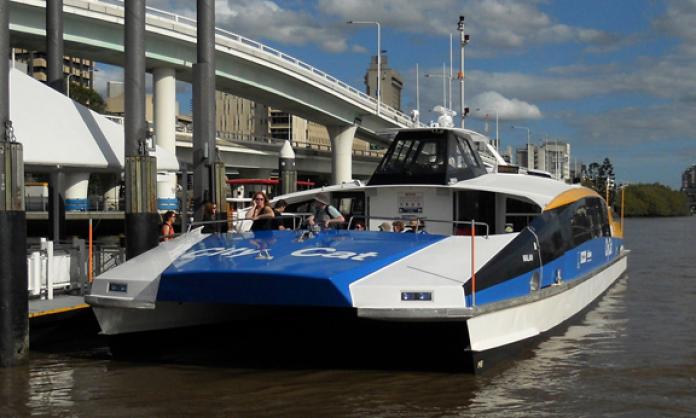Brisbane ferry workers docked their ferries and walked off the job for 48 hours on 6 December, following a year of failed negotiations with their employer, Transdev.
They walked off again for 24 hours on 20 December and have flagged further industrial action in the new year.
All sections of the workforce are involved: masters, who drive the ferries, deck hands and customer service officers. For many striking workers, this is their first industrial action.
Transdev is a French multinational company that won the tender to operate Brisbane ferries six years ago, hugely undercutting its competitor. Ever since, Transdev workers have suffered pay cuts, worsening conditions and increased casualisation.
Several workers told Red Flag that the company’s cost cutting is also compro-mising ferry maintenance and safety, putting workers and the public in dan-ger. Yet, as one worker at the 20 December meeting said, “I feel like I can’t complain about poor maintenance for fear of the sack”.
And the company is proposing to cut ferry crews from three people to two. The secretary of the Maritime Union of Australia Queensland branch, Bob Carne-gie, told Red Flag: “Ferries which carry a minimum of 100 people need cus-tomer service officers for the safe running of the ferries and we’re not going to accept crews being knocked down to two”.
Transdev’s profits were $521 million in 2016. But it treats its workforce and the public with contempt.
Delegates and union representatives have met with Transdev 17 times this year to negotiate an enterprise bargaining agreement. But management has refused to acknowledge the workers’ demands. As one worker told Red Flag: “Transdev are giving with one hand and taking with another”.
Tracey Ellis, a master, recently resigned after working on the ferries for 11 years. She told Red Flag that since Transdev took over the ferries, she and other masters’ pay had been cut by nearly 25 percent. “Every time we get a pay increase the company manipulates the rosters to take that away”, she said.
Transdev has also avoided paying workers their travel allowances by rostering them to start their shift a minute later than required to qualify for them.
With its contract ending in May, one worker commented: “It’s a last bid by the company to rip as much money out before the contract ends”.










